5 Vitamins for Healthy and Radiant Skin
Healthy Skin
| Estimated Reading Time - 7 minutes |
Most people tend to assume that skincare is just about beauty, but on the contrary, skincare is just as much about one’s overall health as it is about looking good. Our skin acts as a window to our health & wellbeing. If your body and organs are unhealthy, it reflects on your skin. And being the largest organ of the body, your skin needs a variety of nutrients and proteins to stay at its best. This is why it is always good to add more and more healthy nutrients and vitamins to your diet through healthy fruits & vegetables, that are abundant in Vitamins.
Contrary to what you may have come to believe due to advertisements, Vitamins are not supplements for your health - they are essential nutrients that you are to consume every day to be able to survive. Most people, if consuming balanced & nutritious diets, get their vitamin requirements appropriately covered. By consuming vitamins, you enable your skin to bask in their goodness from the inside. However, you should know that applying vitamins to your skin topically has direct benefits that you do not get by consuming them orally! Wondering how to add these Vitamins to your skincare? Or what Vitamins do you need for yourself to do good for your skin? Fret not, because we are here to tell you about the best vitamins to get healthy skin today!
Here is a list of 5 of the absolute best vitamins for healthy skin ready to nourish your skin and take away your woes.

The 5 Best Vitamins for Healthy Skin That Glows
Vitamin A - The King of Skin Regeneration
Vitamin A is an oil-soluble essential nutrient known for its functions around one’s eyesight and immunity system. A deficiency of Vitamin A can cause night blindness! Often Vitamin A is referred to as retinoid, as both forms of the Vitamin we consume is converted into retinoids through our digestive system.
We consume Vitamin A every day through our regular diets as various foods such as leafy vegetables, carrots, eggs, fish, and tomatoes have a good content of Vitamin A. Though the lymphatic system makes sure all our body organs receive their share of retinoids, our skin receives most of the goodness of retinoids through topical application as both the upper and lower layers of skin are capable of absorbing retinoids.
As one of the best vitamins for healthy skin, retinoid formulations such as retinol are often prescribed to those with acne problems because Vitamin A has the characteristic of boosting skin regeneration tremendously. It works by sloughing away older damaged layers of your skin and causing a new clear skin to emerge from beneath. This is precisely why it is an excellent choice for treating acne scars, hyperpigmentation, preventing fine lines and wrinkles, undoing sun damage on the upper skin layers. At its core, Vitamin A is healing and nourishing for your skin.
However, Vitamin A is quite strong of a formulation for your skin and must be used carefully. You could notice redness and itching on your skin when you first use retinoids topically, but this is because the compound is rushing blood into your upper skin layers to fasten skin regeneration. Therefore, it is important to let your skin get used to topical Vitamin A before going bonkers with its use.
Vitamin C - A Hydrating & Skin-Brightening Magician
Vitamin C is quite possibly the most loved and go-to ingredient in the realm of skincare. Wondering why? Well, the answer is quite simple: it is low risk and versatile.

Vitamin C can generally be used without too much caution by anyone as its hydrating and anti-oxidant properties help all skin types. Because Vitamin C is water-soluble, it does not make your skin greasy as oil-soluble vitamin C serums such as Vitamin E might. Instead, it hydrates the layers of your skin from deep within and speeds up healing processes and collagen production. This automatically adds radiance to the skin. Other benefits of Vitamin C include skin brightening, even skin tone, exfoliation, acne-relief, skin tightening, reducing sun damage, and much, much more. Needless to say, any vitamins for healthy skin blog would be incomplete without mentioning this wonderful essential nutrient.
Also known as ascorbic acid, Vitamin C is found in multiple foods one consumes every day such as citrus fruits, broccoli, sprouts, and even potatoes. You can use Vitamin C topically for a variety of purposes and in the form of many kinds of products such as vitamin C serum, face cleanser, lotion, and face moisturiser. Vitamin C formulations further make amazing and easy DIYs such as face packs, body scrubs, and toners. The most concentrated benefits of ascorbic acid can be reaped through formulated Vitamin C serums or capsules.
Vitamin B3 - To Regulate Sebum
Vitamin B3 belongs to the group of water-soluble B-complex vitamins. Though B-complex vitamins share similar names, all eight of these compounds are distinct in their functions and benefits. Here, we are going to be speaking about Vitamin B3, commonly known as Niacinamide, which has in recent years been found to have benefits that are quite similar to the star ingredient in skincare products, Vitamin C.
For the body, Vitamin B3 performs the essential function of regulating metabolism as it helps break carbohydrates, fats, and proteins down so that our body can use it as energy. Co-existing with other B-complex vitamins, niacinamide can be found in very common foods human beings eat every day such as brown rice, eggs, red meat, bananas, legumes, and grains such as wheat. It is therefore unlikely for you to develop a Vitamin B3 deficiency if you’re consuming a balanced diet.
Much like Vitamin C, the special characteristic of Vitamin B3 is that it has little to no risk and is suitable for most skin types. Since Vitamin B3 plays a role in breaking down fats, it also plays a role in regulating sebum production on the surface of your skin. This is exactly how the Vitamin acts as a great ingredient to prevent acne and excessive sebum. The chemical is further associated with treating eczema and dry skin because it strengthens the natural oil barrier on one’s skin while soothing any redness or nutrient deficiencies on your skin.
Niacinamide is presently commonly found in skincare face serums and face moisturisers and is a relatively popular choice to enable anti-aging processes on the skin, reduce dark spots, and get a smooth and even complexion. Consuming supplements is not advised without medical supervision, but topical application of Vitamin B3 is mostly safe.
Vitamin E - For All Your Moisturisation Needs
Vitamin E is one of the best vitamins for healthy skin out there if you have problems with dryness. Seen in a variety of products including capsule, face serum, face washe and face moisturiser- Vitamin E has unique moisturising, nourishing, and healing characteristics that make it practically an elixir for your skin. Chapped lips, cracked heels, or dark circles - the nutrient acts as an excellent treatment for all.

Let’s get into what Vitamin E is exactly and what it does for your body. Just as many other Vitamins, Vitamin E is a fat-soluble substance. It is widely known for its essential functions as an immunity booster, regulating and enabling body movements through nerve impulses, preventing blood clotting, and enabling your body to absorb Vitamin K. A deficiency of Vitamin E could impair your vision, body movements, and damage your cells.
Though there are several forms of Vitamin E, our body only uses alpha-tocopherol. It is quite unlikely for you to have a deficiency of this nutrient as average diets always contain the required intake of the chemical. It is available abundantly in foods such as avocados, spinach, almonds, mangoes, and peanuts. It naturally enters the surface of your skin through sebum and plays a role in keeping it moisturised and healthy. However, a topical application of the Vitamin has much more benefits such as scar healing, repairing dry skin, healing dark circles, and so on.
You can apply Vitamin E topically by using Vitamin E capsules that are available in the market for reasonable prices and can be opened to extract Vitamin E oil on the inside. The oil can be directly used on your skin, or as a DIY ingredient. There is also a range of Vitamin E containing beauty products available in the market.
Vitamin K - The Healer
If you don’t hear much about Vitamin K in the skincare world, it is quite understandable. The vitamin is pretty underrated when compared to its contemporaries such as A, C, or E. However, you’re in for a ride and are about to find some life-changing information! Though underrated, Vitamin K is being studied in the field of dermatology extensively to find out how exactly it helps your skin. Here’s what we do know: Vitamin K is a fat-soluble compound that is systemically involved in essential bodily functions including the absorption of calcium in one’s bones, blood clotting, and wound contraction. It is also both a great anti-oxidant and an anti-inflammatory.
Vitamin K is also called phytonadione and is especially a popular ingredient in under-eye creams. Researchers have found that Vitamin K may play a role in brightening your skin because it is involved in blood clotting and wound healing. In other words, topically applying Vitamin K on your skin gives you a boosted skin healing and regeneration process - which works great for hyperpigmented spots, dark circles under your eye, and giving you an even complexion. Additionally, some research has associated Vitamin K with a reduction of prominent fine lines and wrinkles. This is what makes Vitamin K one of the underrated but best vitamins for healthy skin.
Vitamin K is present plentifully in foods such as spinach, kale, broccoli, lettuce, eggs, and cauliflower. In skincare, the ingredient is used a lot in under-eye creams & serums and occasionally in products that are formulated to reduce scars and enable healing. You can therefore make use of Vitamin K topically through these products.
Parting Note
To live a beautiful life, one must pay attention to their health and wellbeing above all other things. Though they’re not always your go-to choice for a craving, fruits and vegetables are good for you and essential for you to have a rich and healthy life. Most Vitamins (chemical compounds responsible for essential functions in the human body) are given to our system by leafy vegetables and juicy fruits. So, eat up!
However, the optimisation of the skin benefits of Vitamins is reaped by topical application. The best Vitamins for healthy skin amongst the range of Vitamins our body uses up are Vitamin A, Vitamin C, Vitamin B3, Vitamin E, and Vitamin K. According to your skincare needs, each of these chemical compounds can help you get radiant and beautiful skin within weeks of regular application. What are you waiting for? Add these beautiful vitamins for healthy skin in your regimes today!
Recommended Products by Blue Nectar:
Shubhr Vitamin C Face Serum with Hyaluronic Acid for Dark Spot Correction and Glowing Skin
Shubhr Dark Spot Corrector Cream with Natural Vitamin C for Glowing Skin (Women)


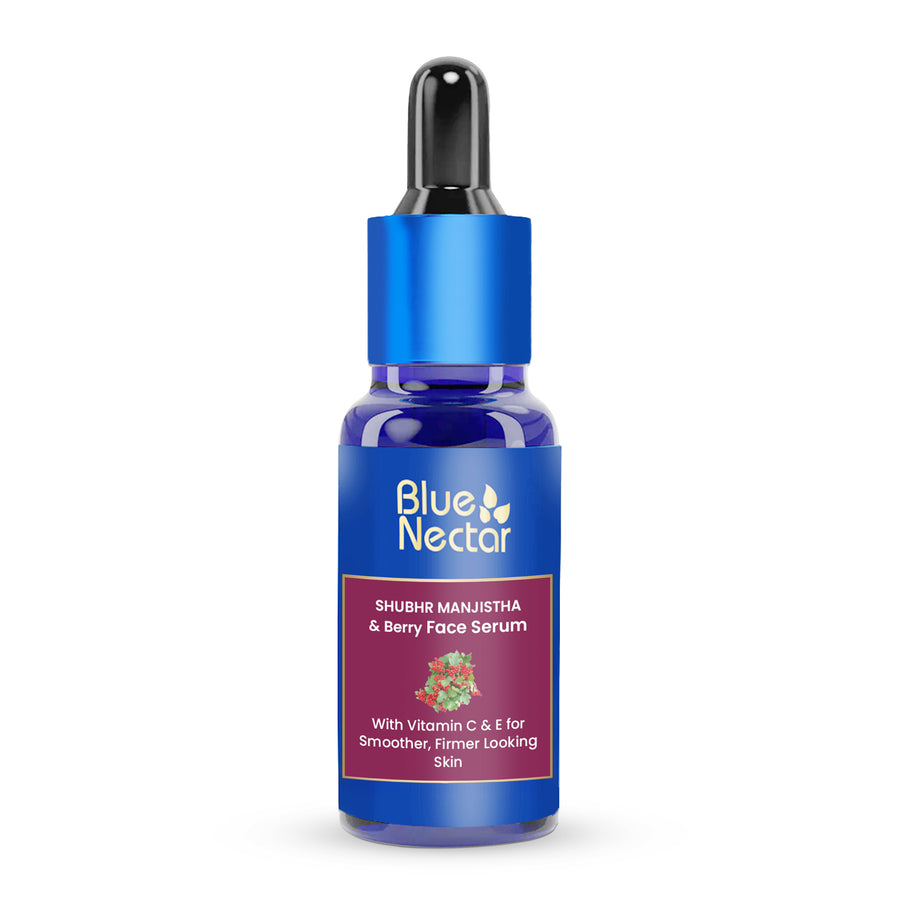
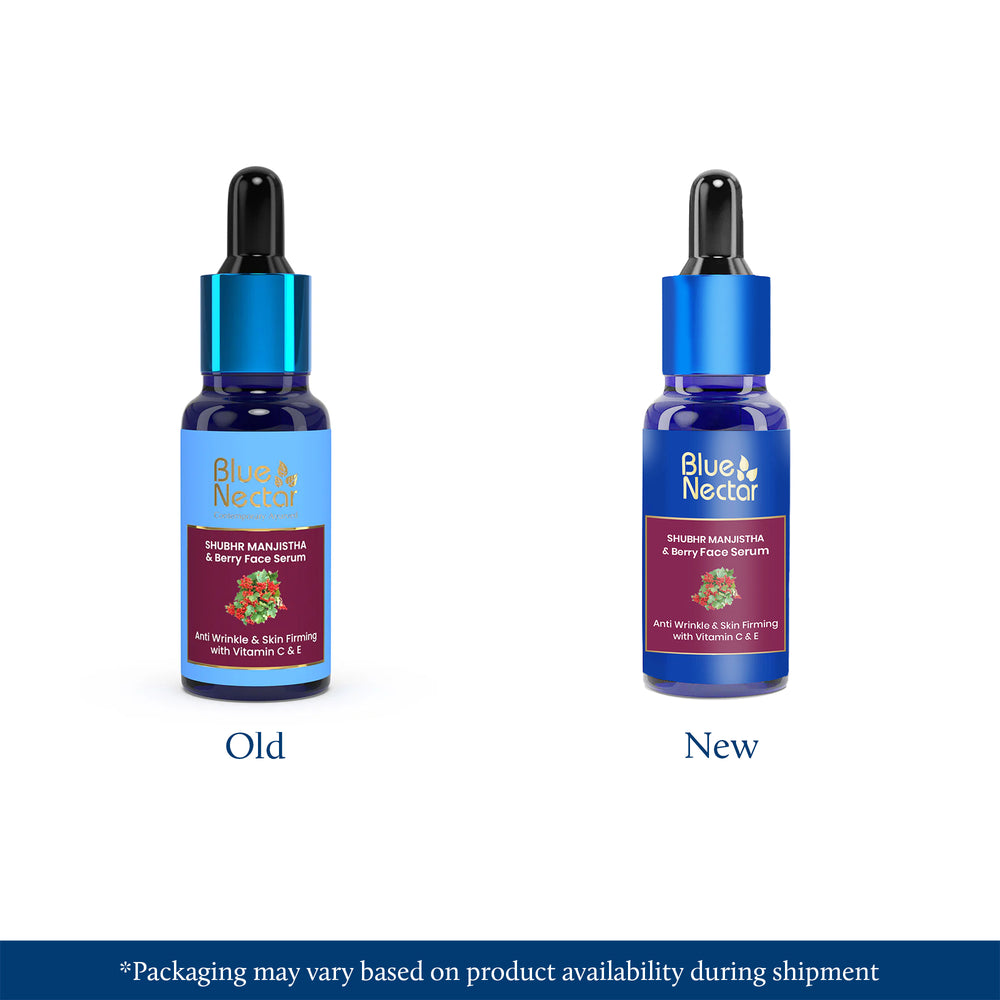



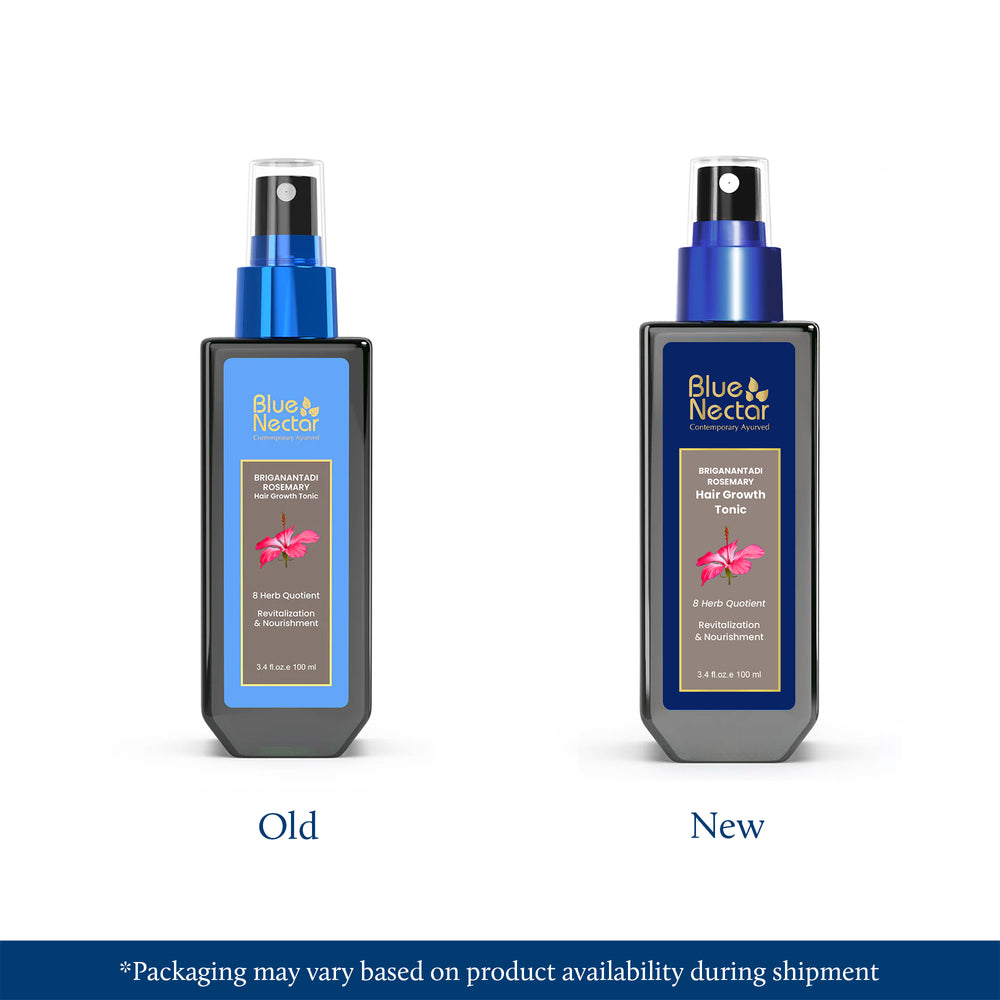
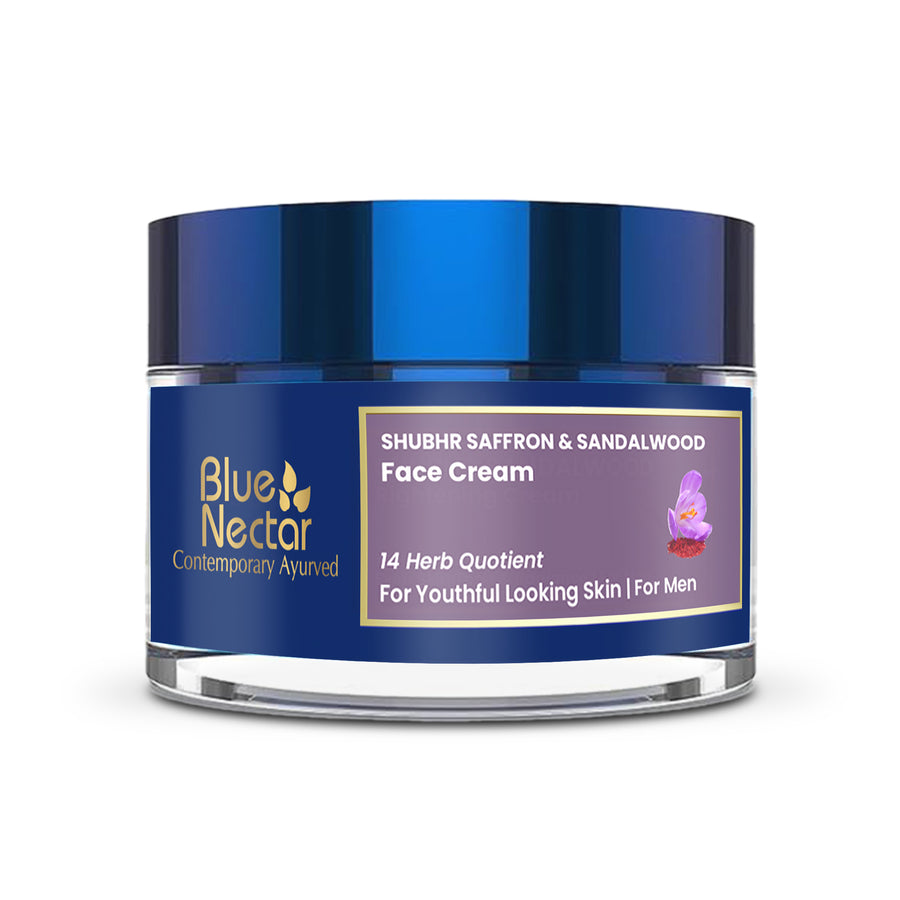
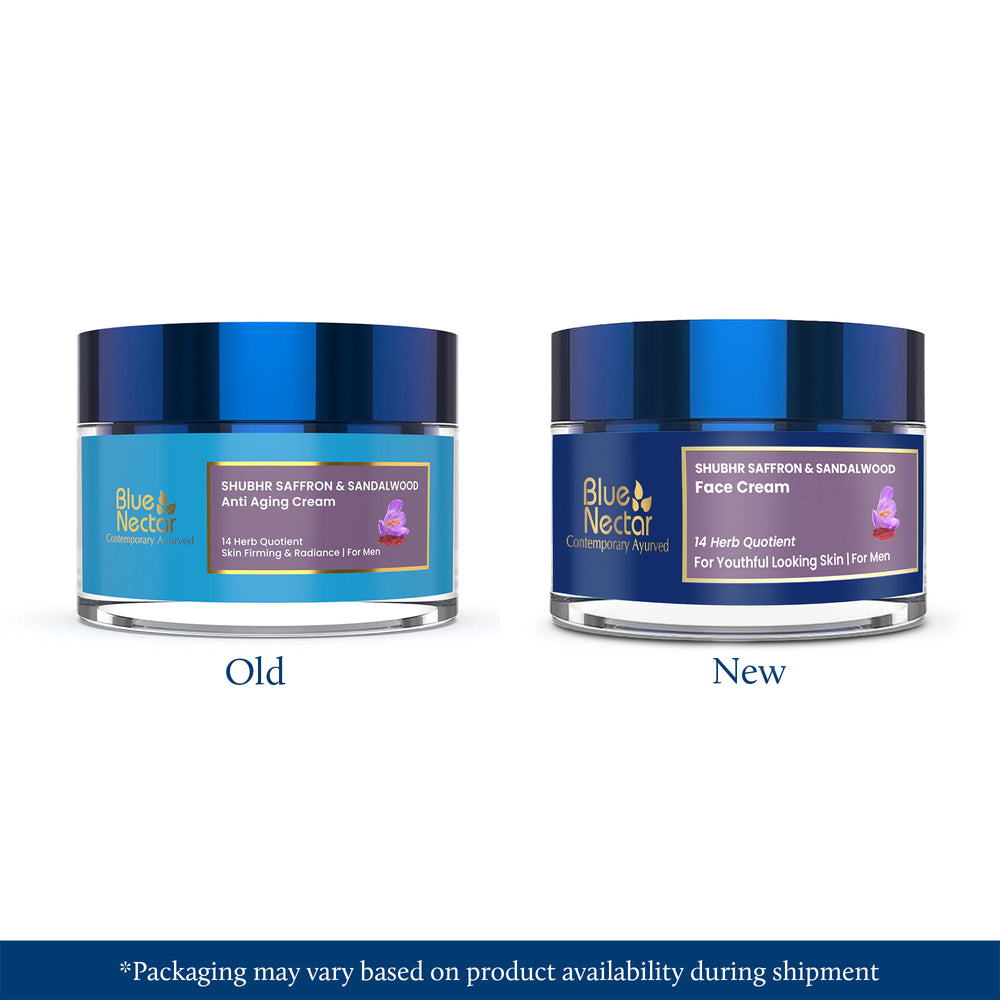
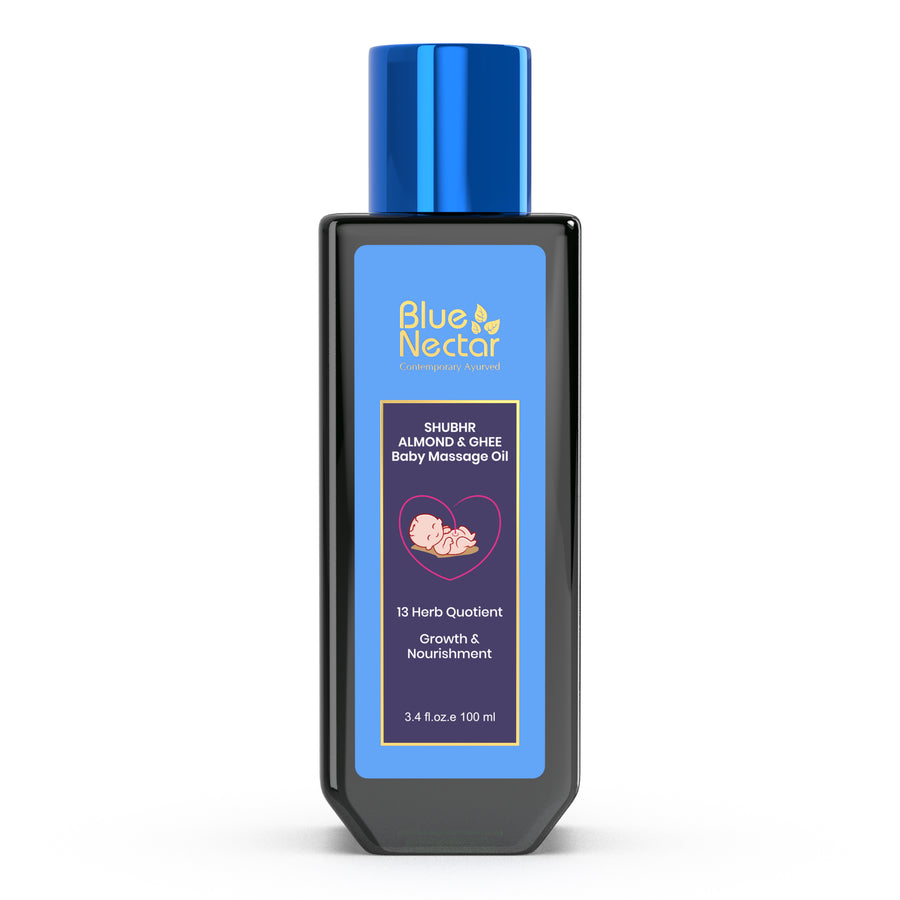
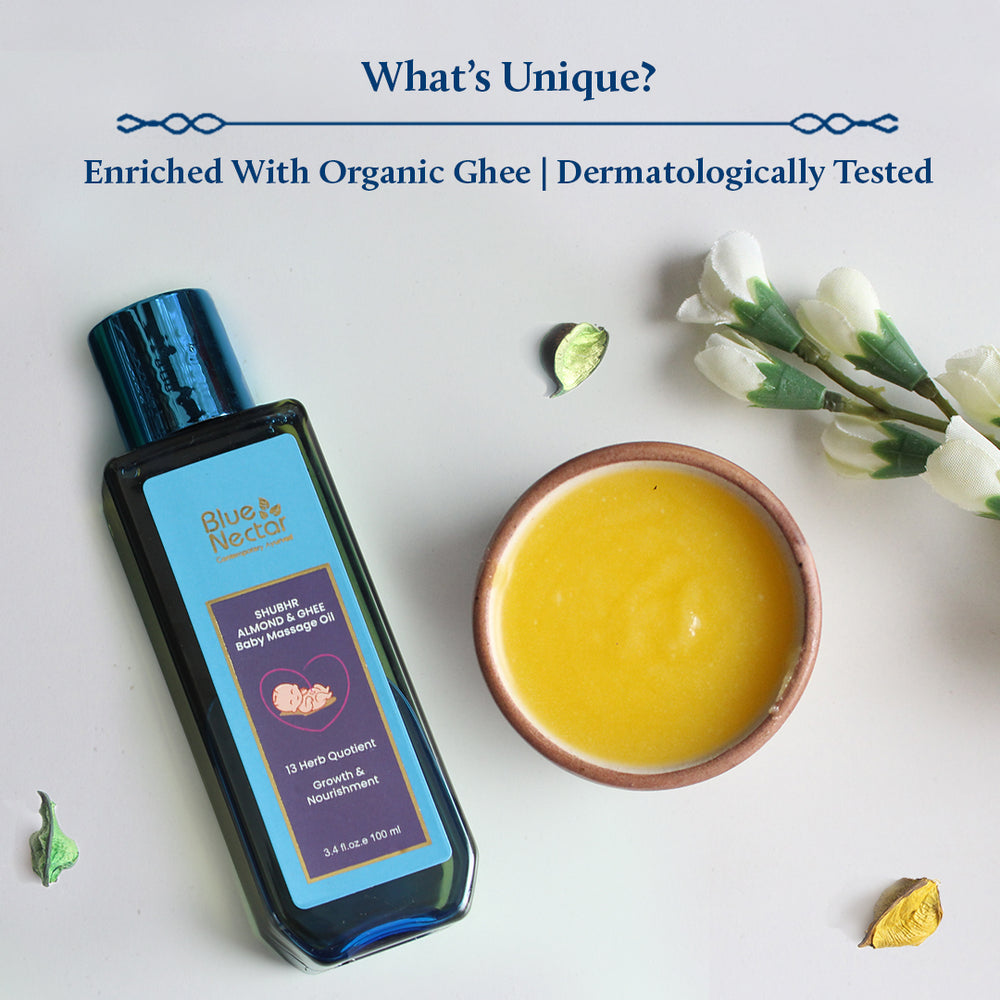


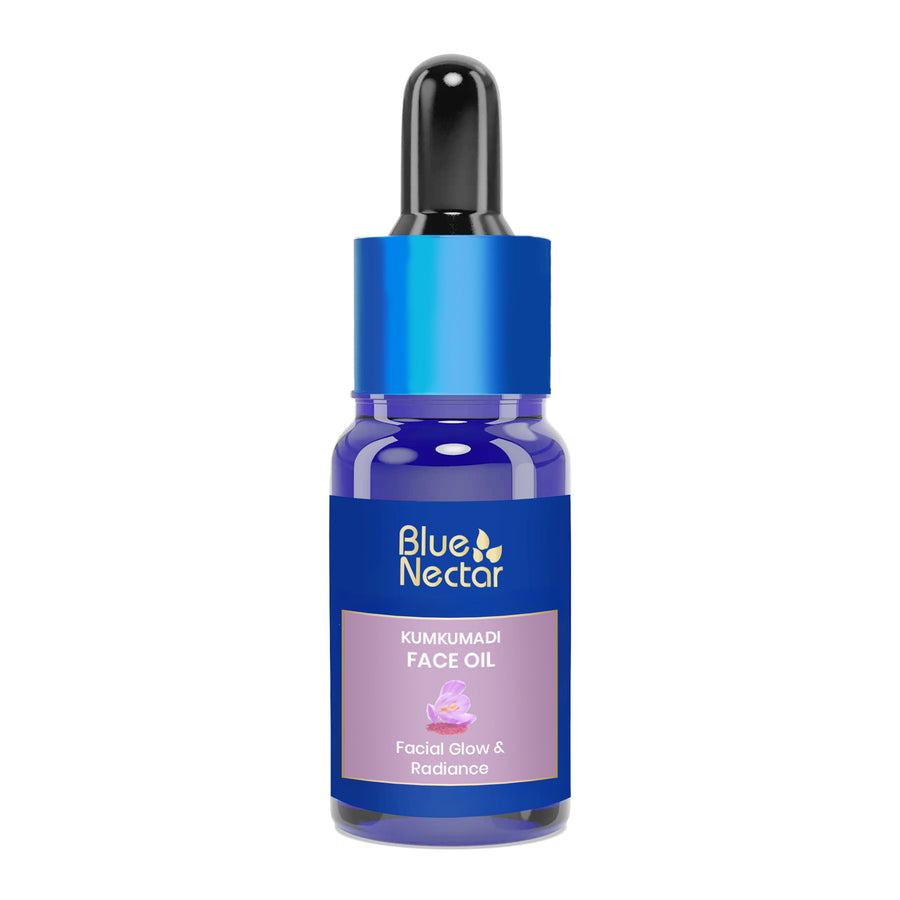
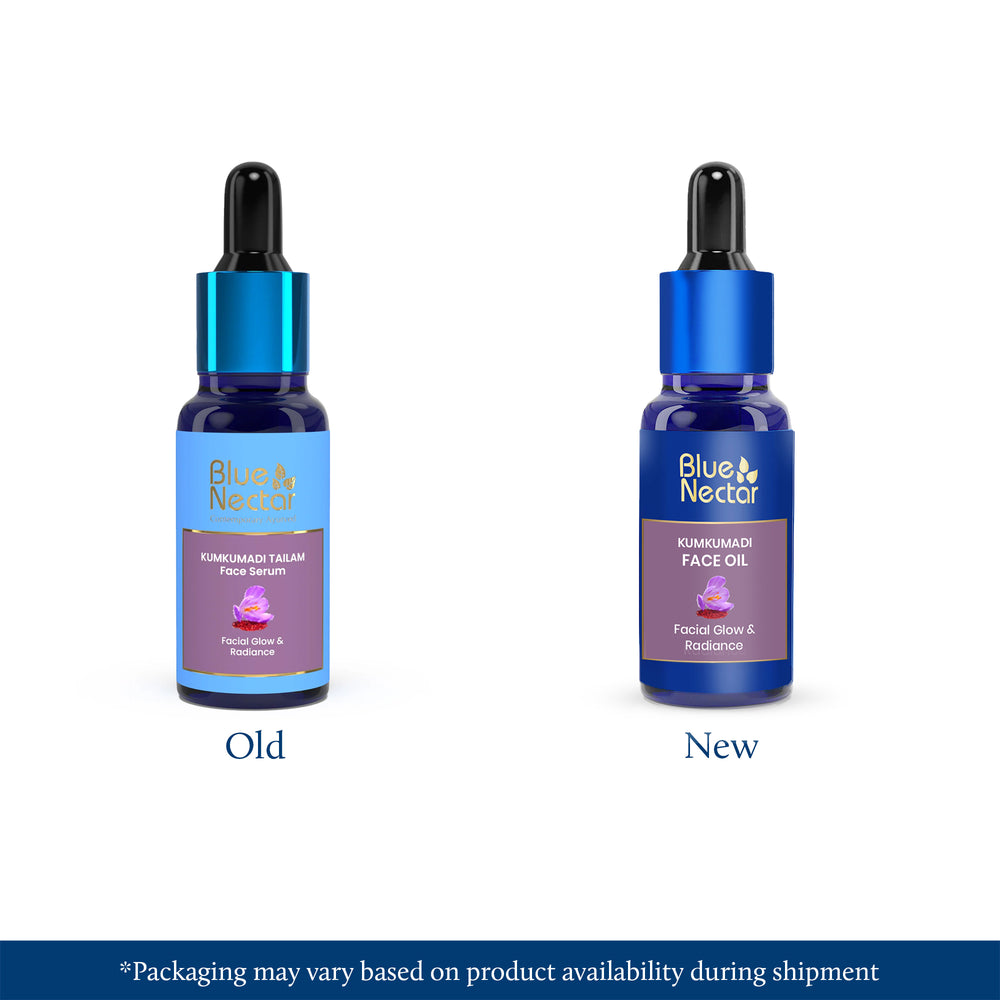
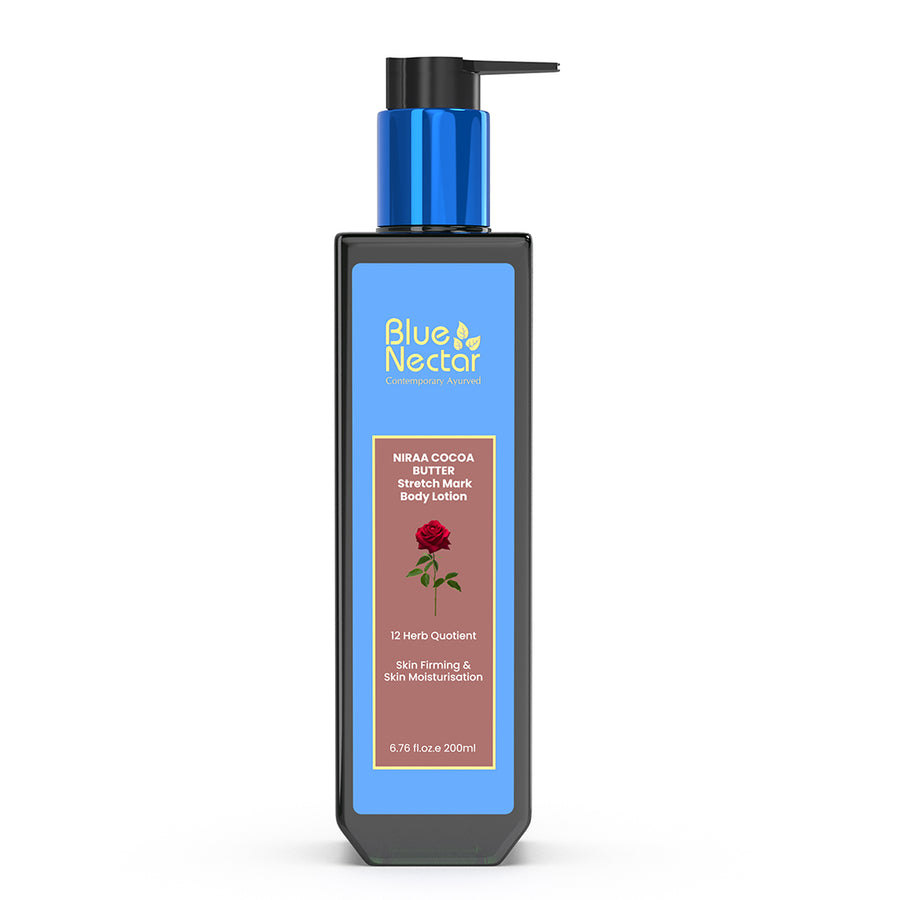
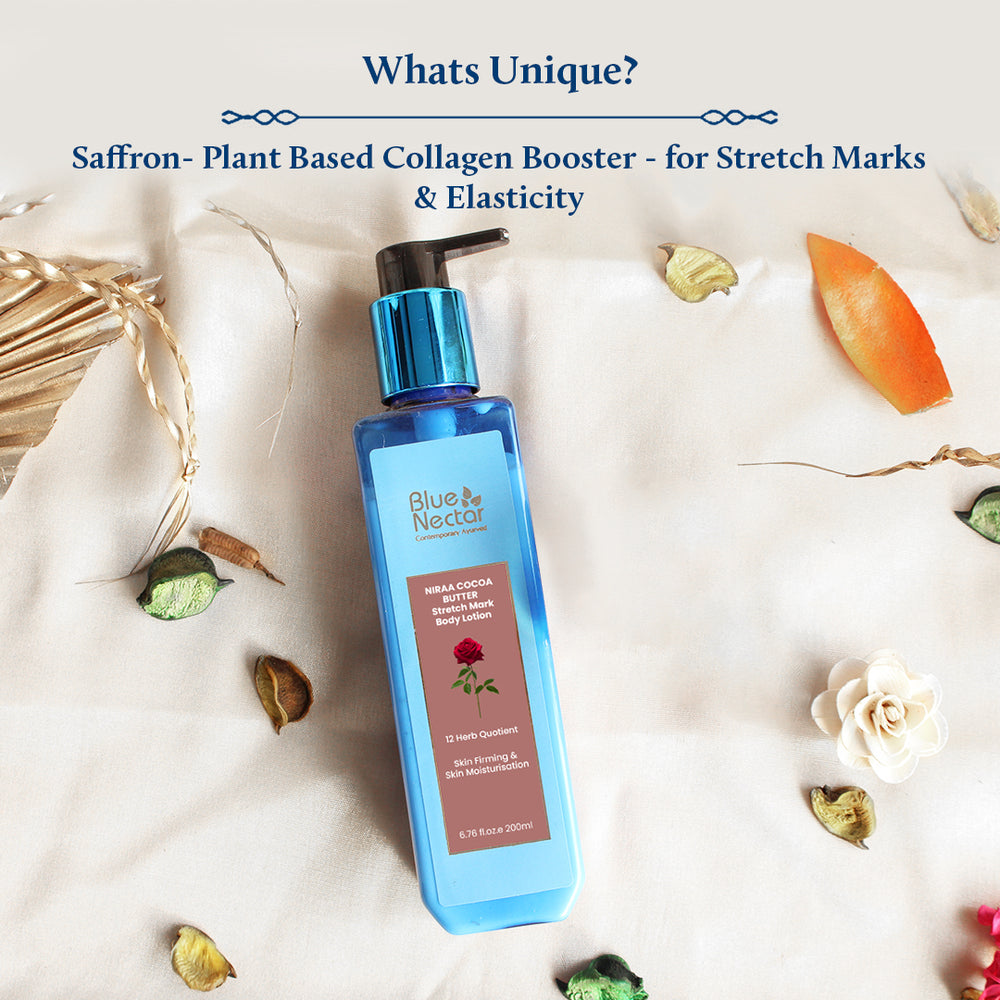
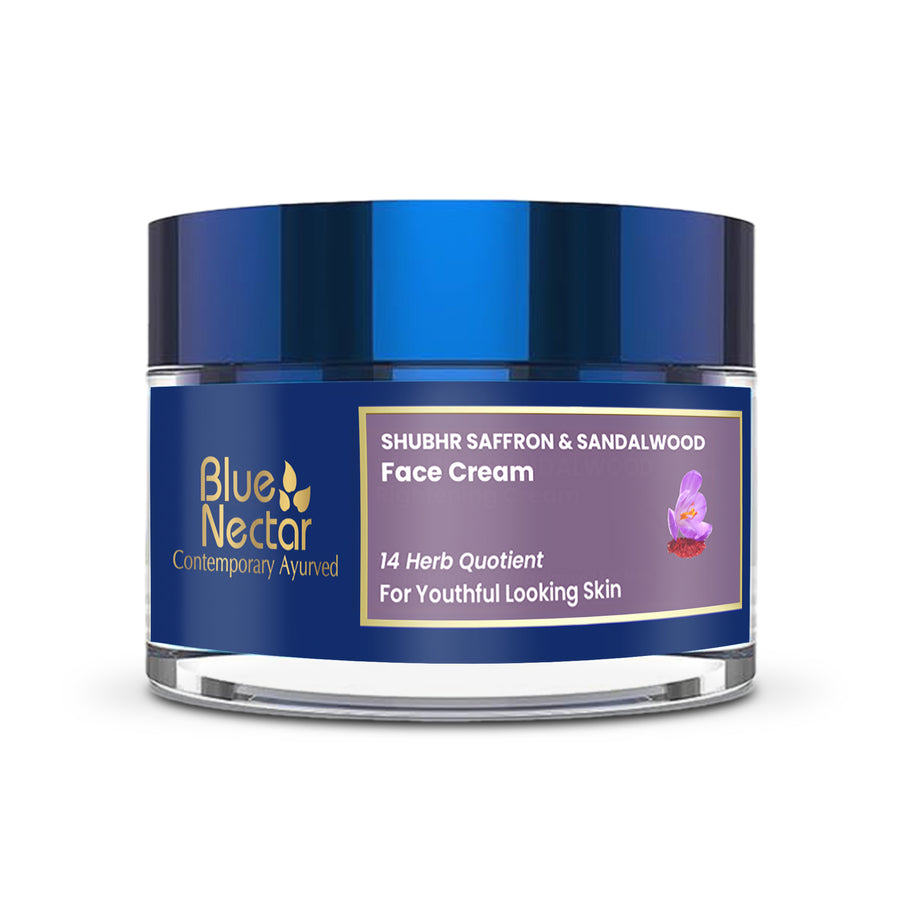
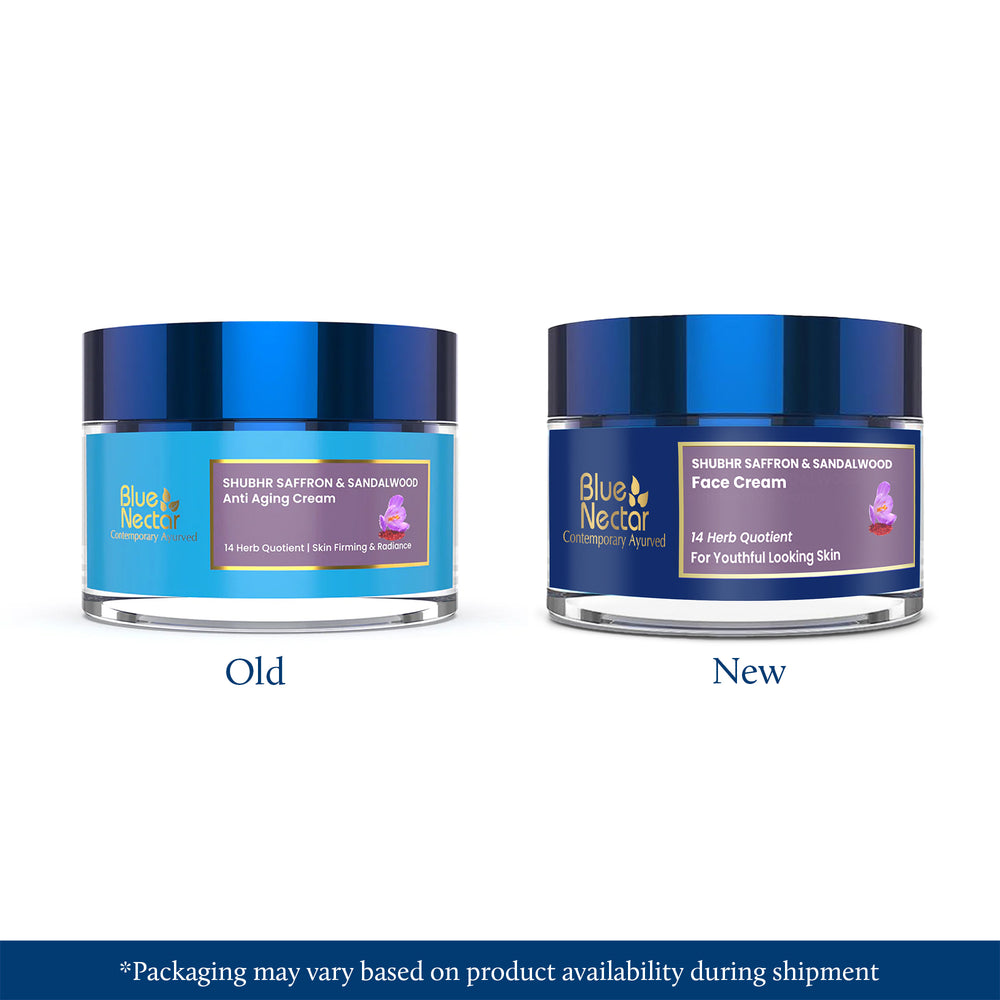
Leave a comment